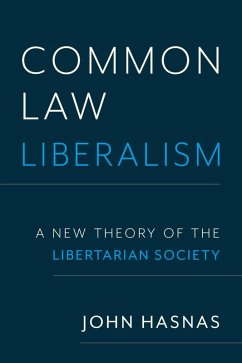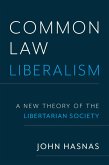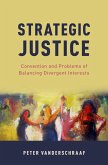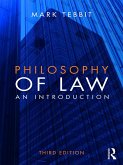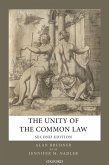In conventional political philosophy, law is understood as consciously created rules that are a necessary mechanism for curtailing the excesses of the free market. John Hasnas challenges this view, offering a new theory that presents common law as an effective alternative to traditional politically created legislation. Common Law Liberalism demonstrates that the common law can provide all rules necessary to sustain a peaceful, prosperous, liberal society--without intervention by politically created legislation and the exploitation and oppression it so often engenders.
Dieser Download kann aus rechtlichen Gründen nur mit Rechnungsadresse in A, B, BG, CY, CZ, D, DK, EW, E, FIN, F, GR, HR, H, IRL, I, LT, L, LR, M, NL, PL, P, R, S, SLO, SK ausgeliefert werden.

